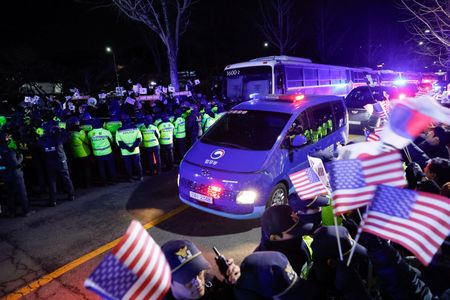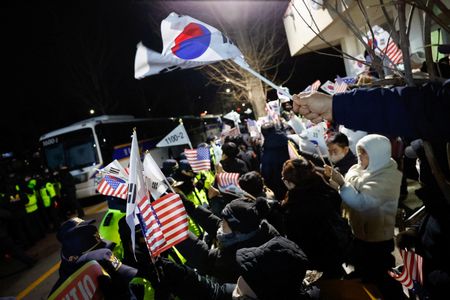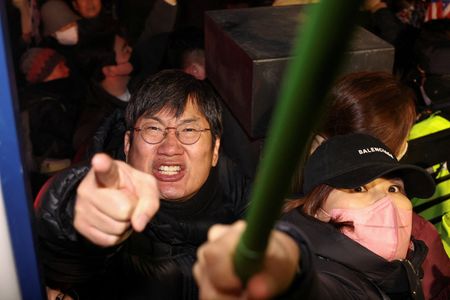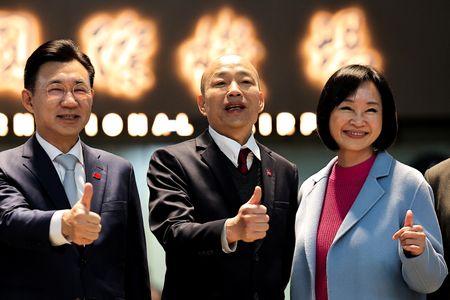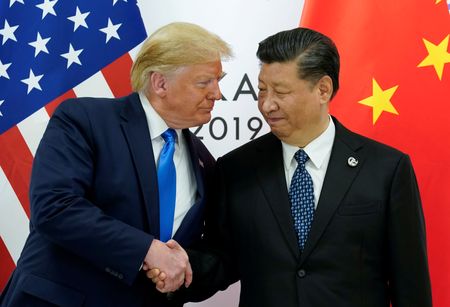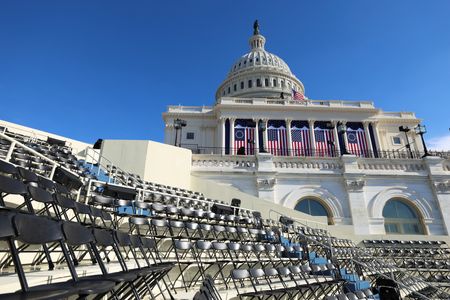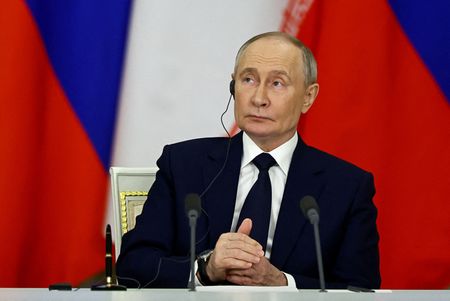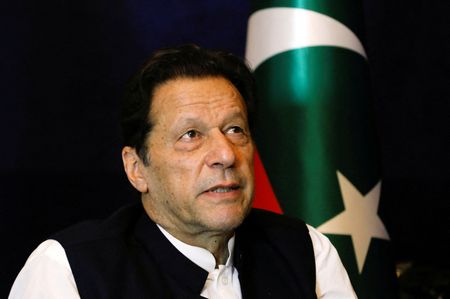By Joyce Lee and Hyunsu Yim
SEOUL (Reuters) -A South Korean court on Sunday extended President Yoon Suk Yeol’s detention for up to 20 days, leading to violent protests by hundreds of angry supporters who stormed the court building, smashed windows and broke inside.
Yoon on Wednesday became the first sitting South Korean president to be arrested as he faces allegations of insurrection related to his stunning Dec. 3 declaration of martial law that has plunged the country into political turmoil.
Shortly after the court approved investigators’ request to detain Yoon further around 3 a.m. on Sunday, TV footage showed his supporters pushing past lines of police to enter the court, some destroying furniture and blasting fire extinguishers at officers trying to suppress them.
Police arrested about 40 protesters and restored order a few hours later, broadcaster YTN reported, citing police.
With a requirement either to petition for longer detention or to free the president within 48 hours, South Korean investigators asked a Seoul court on Friday to hold him for longer after he refused to be questioned.
After a 5-hour hearing on Saturday, which Yoon attended, the Seoul Western District Court opted to grant the investigators’ request due to “concern that the suspect may destroy evidence,” the court said in a statement.
Under the new warrant, Yoon can be detained for up to 20 days. South Korean regulations require a suspect detained under a warrant to undergo a physical exam, have a mugshot taken and wear a prison uniform.
The leader is expected to be held in a solitary cell at the Seoul Detention Centre where Yoon is staying.
The CIO said in a statement it will investigate Yoon in accordance with the law and procedure.
Seok Dong-hyeon, one of Yoon’s lawyers, said the court’s decision was “really hard to understand” but asked for calm.
“Such expressions of anger are understandable, but if they go too far and continue to be violent, they could be caught up in targeted attacks or counter-attacks by leftist forces,” he said. “We need to stay calm,” he said in a Facebook post.
So far, denying the allegations that he masterminded insurrection, Yoon has stonewalled efforts by the CIO to interrogate him, refusing to attend questioning. It was unclear if Yoon would change his position under the extended detention.
Insurrection, the crime that Yoon may be charged with, is one of the few that a South Korean president does not have immunity from.
Lawmakers impeached Yoon on Dec. 14, suspending his presidential powers. Separate to the criminal probe that sparked Sunday’s chaos, the Constitutional Court is deliberating over whether to uphold the impeachment and permanently remove him or restore his powers.
(Reporting by Joyce Lee, Hyunsu Yim and Ju-min Park, Editing by Timothy Heritage, Susan Fenton, Cynthia Osterman and Diane Craft)

